HABBIE
HABBIE
HABBIE
HABBIE
HABBIE
HABBIE
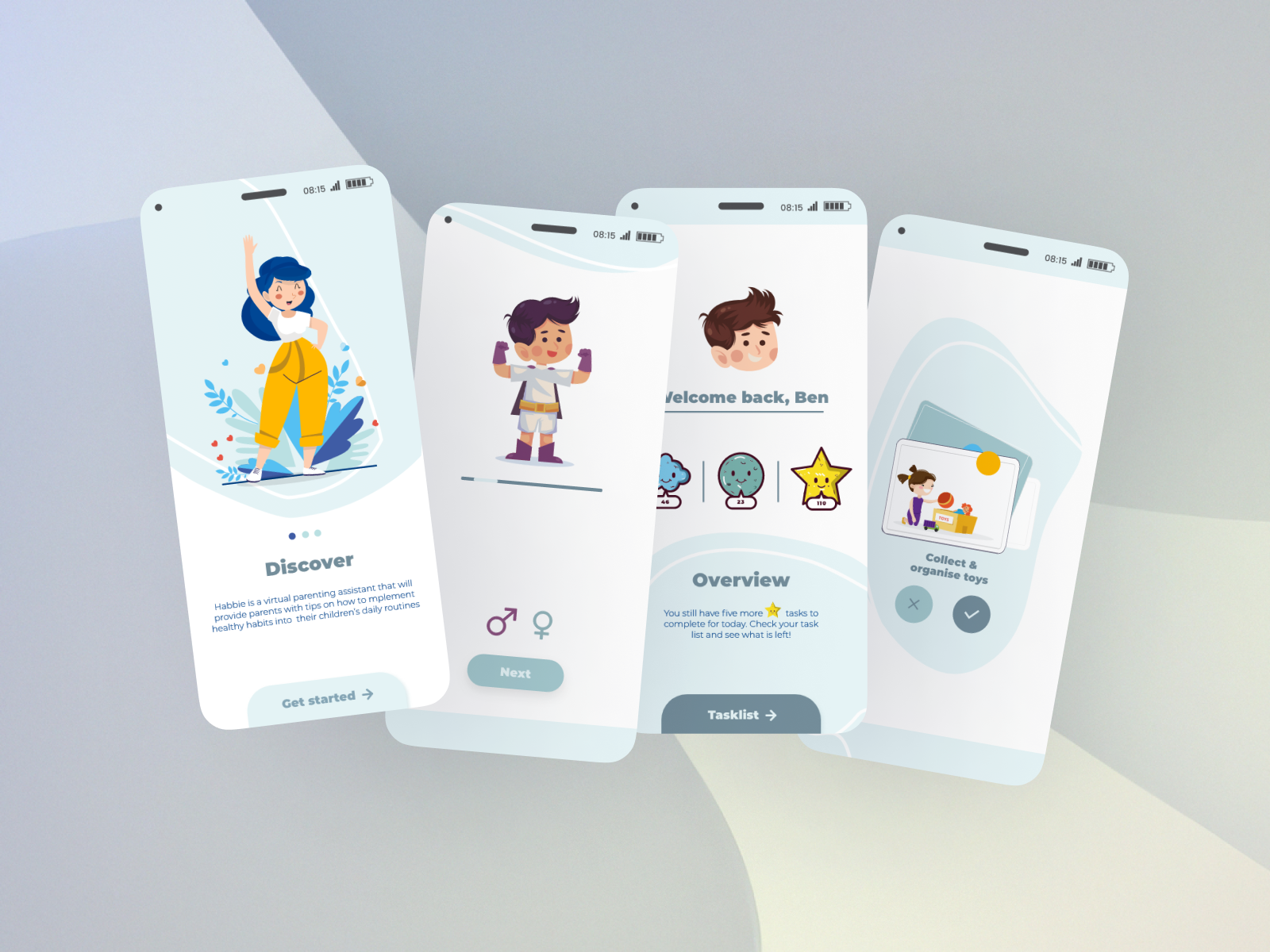
/PROJECT OVERVIEW/
For this project, I had the privilege of collaborating with the Dutch Innovation Factory in Zoetermeer during my minor in Next Successful Online Start-up. Our focus centered on the development of an app, designed to serve as a personalized parenting assistant tailored for young parents navigating the challenges of a busy lifestyle.
While modern parents often express that parenting is less demanding than in previous generations, the presence of the digital age introduces new and unique challenges. Our project aimed to address the complexities faced by modern parents, particularly as they raise children native with mobile technology from birth.
Situations like this one made us think about how we could help this new generation of parents and contribute to a better family bond. Additionally, our objective was to empathize with busy young parents who struggle to balance their daily schedules while ensuring optimal growth for their children."
/Style tile/
We used the Prioritization matrix method to decide on which features we should include in the MVP, depending on the difficulty of implementation and urgency. Moreover, we visualized a critical path a user takes while interacting with the application. By illustrating the user flow, we made it easier to communicate with the developers and other skateholders.
Once the features were discussed and chosen, we created a first MVP in the form of a low-fidelity prototype and conducted early user testing by designing a landing page with a CTA button, redirecting to the prototype, and a flyer campaign with a QR code on the flyer. This way, we managed to measure the engagement and desirability of the product. After analyzing the results from both campaigns, some conclusions we derived.
Firstly, there was an obvious interest shown by the target audience, regarding future launch and use of the app. Furthermore, users were willing to share the app and spread the word with their peers, which was a promising outcome for the future success of Habbie
/Solution/
The main objective for this project was to develop a digital parenting assistant, in the form of an easy-to-use and intuitive app that would support young parents with raising their children and helping them build positive habits. The goal was not only to reinforce positive habits but to also provide parenting tips & tricks on how to implement those habits in a fun and challenging way. Ultimately, the app should become an everyday tool for parents who want to organize their daily routine and improve the family dynamic and relationship.
Our accomplishment in developing a prototype and Minimum Viable Product (MVP) yielded an easily navigable and intuitive app tailored for parents and their children aged 5 and above. Functioning as a digital assistant, the app serves as a valuable source of parenting advice, offering a playful variety of activities. The completion of these activities results in rewarding system for the children, establishing a positive and motivating system that encourages them to fulfill tasks and challenges.
/Solution/
The main objective for this project was to develop a digital parenting assistant, in the form of an easy-to-use and intuitive app that would support young parents with raising their children and helping them build positive habits. The goal was not only to reinforce positive habits but to also provide parenting tips & tricks on how to implement those habits in a fun and challenging way. Ultimately, the app should become an everyday tool for parents who want to organize their daily routine and improve the family dynamic and relationship.
Our accomplishment in developing a prototype and Minimum Viable Product (MVP) yielded an easily navigable and intuitive app tailored for parents and their children aged 5 and above. Functioning as a digital assistant, the app serves as a valuable source of parenting advice, offering a playful variety of activities. The completion of these activities results in rewarding system for the children, establishing a positive and motivating system that encourages them to fulfill tasks and challenges.
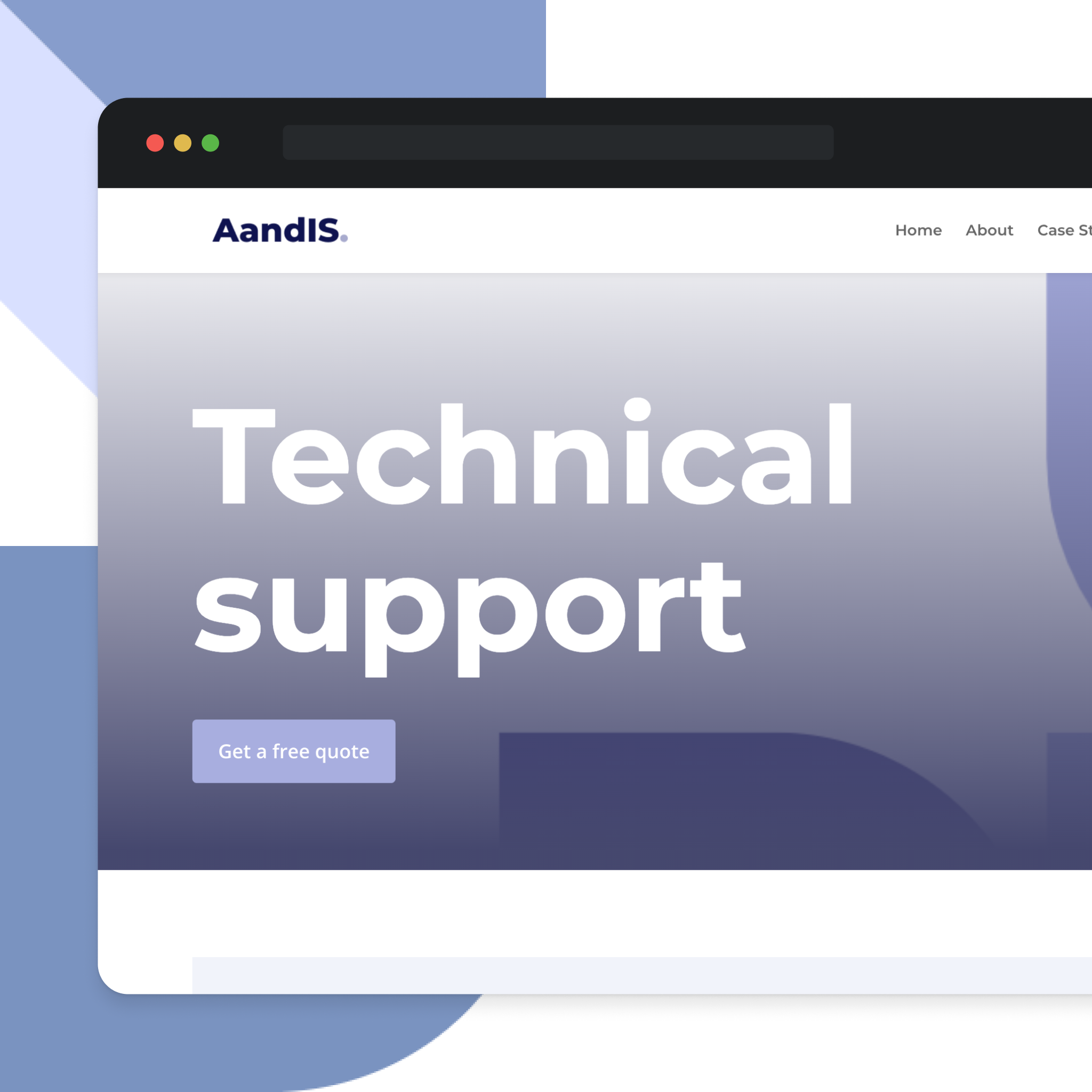
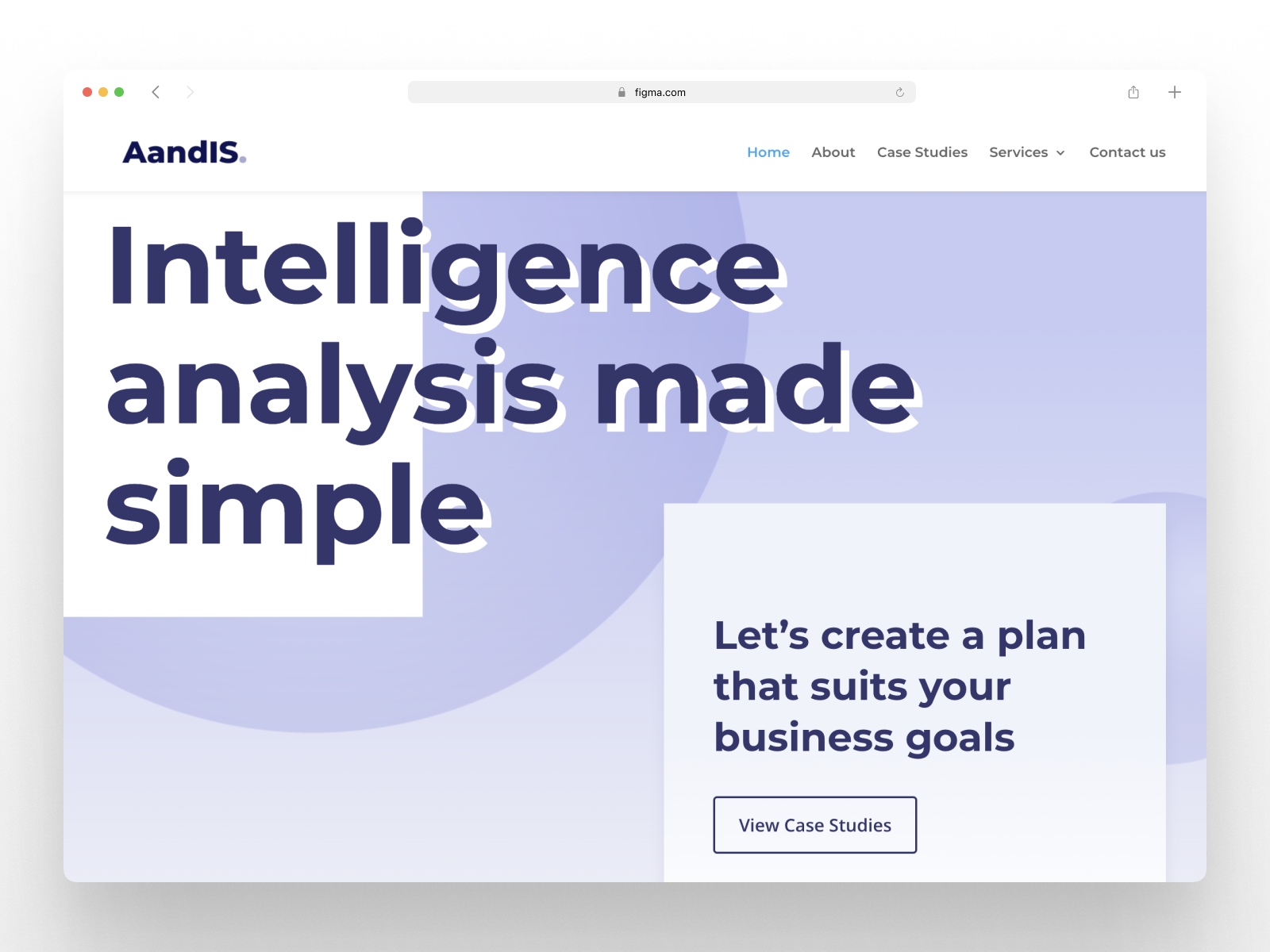
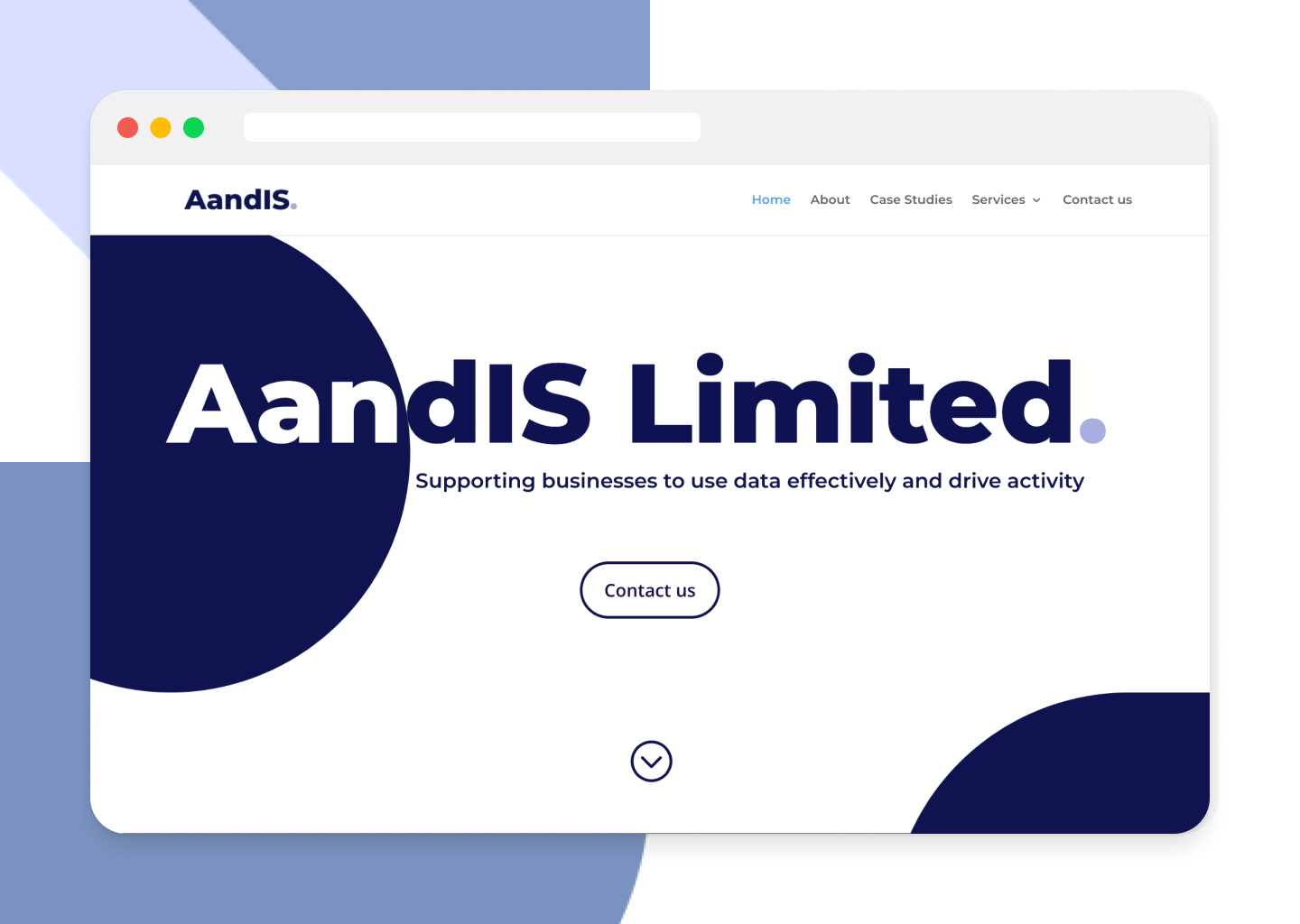
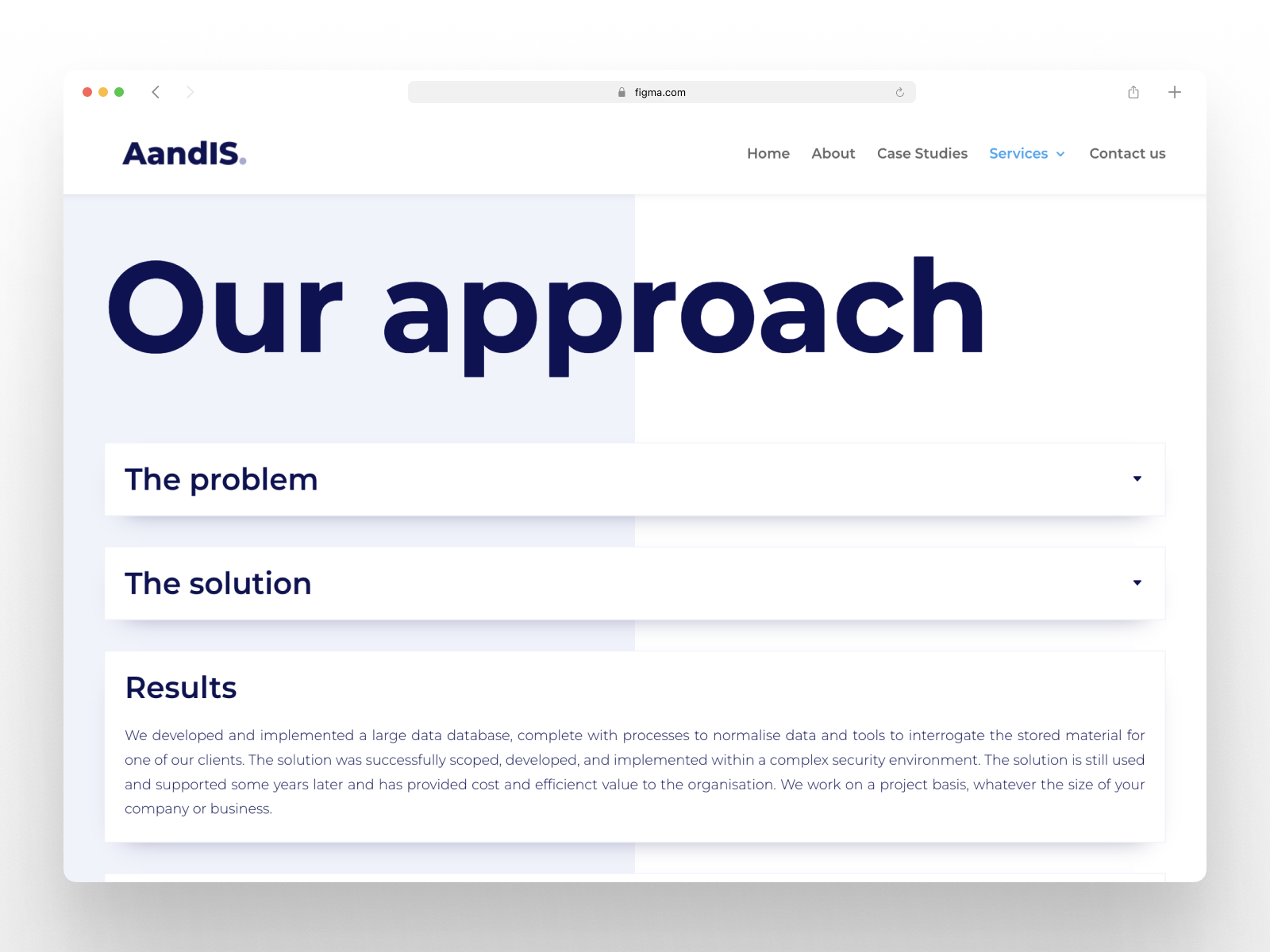
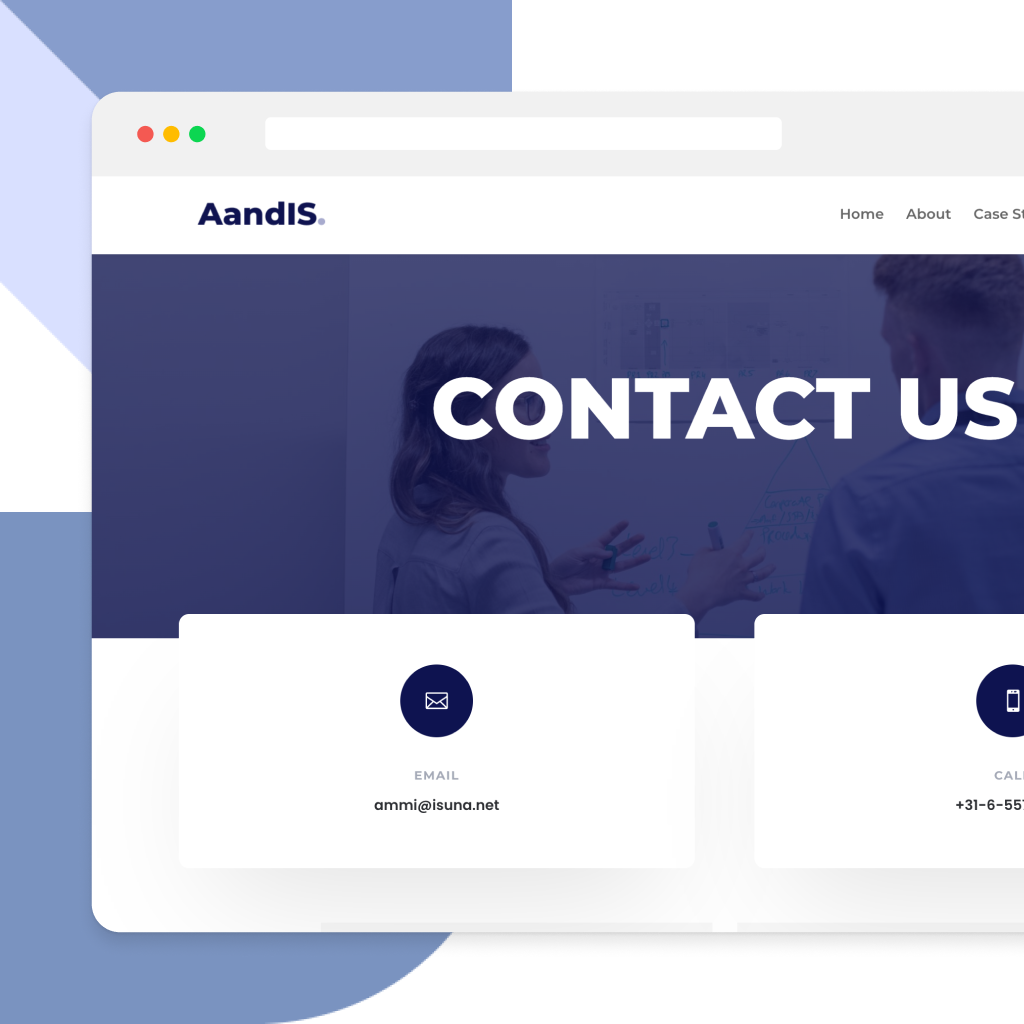

/design challenge/
For this project, I had the privilege of collaborating with the Dutch Innovation Factory in Zoetermeer during my minor in Next Successful Online Start-up. Our focus centered on the development of an app, designed to serve as a personalized parenting assistant tailored for young parents navigating the challenges of a busy lifestyle.
While modern parents often express that parenting is less demanding than in previous generations, the presence of the digital age introduces new and unique challenges. Our project aimed to address the complexities faced by modern parents, particularly as they raise children native with mobile technology from birth.
Situations like this one made us think about how we could help this new generation of parents and contribute to a better family bond. Additionally, our objective was to empathize with busy young parents who struggle to balance their daily schedules while ensuring optimal growth for their children."
/solution/
The main objective for this project was to develop a digital parenting assistant, in the form of an easy-to-use and intuitive app that would support young parents with raising their children and helping them build positive habits. The goal was not only to reinforce positive habits but to also provide parenting tips & tricks on how to implement those habits in a fun and challenging way. Ultimately, the app should become an everyday tool for parents who want to organize their daily routine and improve the family dynamic and relationship.
Our accomplishment in developing a prototype and Minimum Viable Product (MVP) yielded an easily navigable and intuitive app tailored for parents and their children aged 5 and above. Functioning as a digital assistant, the app serves as a valuable source of parenting advice, offering a playful variety of activities. The completion of these activities results in rewarding system for the children, establishing a positive and motivating system that encourages them to fulfill tasks and challenges.
/process/
Our team conducted comprehensive research to get a deep understanding of our target group. A total of seven interviews were carried out, engaging both young parents and professionals from different kindergardens. Additionally, our online survey managed to collect over 20 responses. The analysis of the collected raw data provided invaluable insights, enabling us to identify the specific challenges faced by parents and offering a clear direction for problem-solving.
Subsequently, we progressed through the design process by creating a customer profile map and implementing customer segmentation. These steps helped us with identifying the optimal customer group for our product, laying the foundation for a strong marketing strategy in the later project phases. Furthermore, competitor research, coupled with the application of Porter's 5 Forces model, allowed us to pinpoint our market position and identify potential competitors.
/personas &
user stories/
We used the Prioritization matrix method to decide on which features we should include in the MVP, depending on the difficulty of implementation and urgency. Moreover, we visualized a critical path a user takes while interacting with the application. By illustrating the user flow, we made it easier to communicate with the developers and other skateholders.
Once the features were discussed and chosen, we created a first MVP in the form of a low-fidelity prototype and conducted early user testing by designing a landing page with a CTA button, redirecting to the prototype, and a flyer campaign with a QR code on the flyer. This way, we managed to measure the engagement and desirability of the product. After analyzing the results from both campaigns, some conclusions we derived.
Firstly, there was an obvious interest shown by the target audience, regarding future launch and use of the app. Furthermore, users were willing to share the app and spread the word with their peers, which was a promising outcome for the future success of Habbie
/ideation/
/wireframes/
Upon finalizing the main features for the Minimum Viable Product and conducting early testing, our focus moved fully to prototyping. To establish the fundamental structure of the app, we developed wireframes, essentially laying out the skeletal framework. Rather than attempting to build out the entire application, we focused our efforts on designing the main screens critical to the user flow.
By concentrating on core functionalities and user interactions, we aimed to conduct another early-stage user testing, seeking valuable feedback that would inform refinements and improvements in the subsequent phases of development. This iterative approach not only facilitated a more user-centered design but also ensured a robust and well-informed evolution of the app.
/prototype/
During the prototyping phase, we only fully designed the main screens, as the final deliverable for this project was not the prototype. More precisely, the main deliverable was a business plan, together with a marketing and a financial plan, leaving the actual final digital product not a main priority.
On the other hand, focusing more on other aspects of project development helped me obtain marketing skills and learn how to build a complete business plan from scratch. We did manage to pitch the business plan with a showcase of the app infront of potential investors in the Durch Innovation Factory and got two investment offers if the project was to be continued after finishing my minor.
/user testing/
/Design challenge/
For this project, I had the privilege of collaborating with the Dutch Innovation Factory in Zoetermeer during my minor in Next Successful Online Start-up. Our focus centered on the development of an app, designed to serve as a personalized parenting assistant tailored for young parents navigating the challenges of a busy lifestyle.
While modern parents often express that parenting is less demanding than in previous generations, the presence of the digital age introduces new and unique challenges. Our project aimed to address the complexities faced by modern parents, particularly as they raise children native with mobile technology from birth.
Situations like this one made us think about how we could help this new generation of parents and contribute to a better family bond. Additionally, our objective was to empathize with busy young parents who struggle to balance their daily schedules while ensuring optimal growth for their children."
/solution/
The main objective for this project was to develop a digital parenting assistant, in the form of an easy-to-use and intuitive app that would support young parents with raising their children and helping them build positive habits. The goal was not only to reinforce positive habits but to also provide parenting tips & tricks on how to implement those habits in a fun and challenging way. Ultimately, the app should become an everyday tool for parents who want to organize their daily routine and improve the family dynamic and relationship.
Our accomplishment in developing a prototype and Minimum Viable Product (MVP) yielded an easily navigable and intuitive app tailored for parents and their children aged 5 and above. Functioning as a digital assistant, the app serves as a valuable source of parenting advice, offering a playful variety of activities. The completion of these activities results in rewarding system for the children, establishing a positive and motivating system that encourages them to fulfill tasks and challenges.
/process/
Our team conducted comprehensive research to get a deep understanding of our target group. A total of seven interviews were carried out, engaging both young parents and professionals from different kindergardens. Additionally, our online survey managed to collect over 20 responses. The analysis of the collected raw data provided invaluable insights, enabling us to identify the specific challenges faced by parents and offering a clear direction for problem-solving.
Subsequently, we progressed through the design process by creating a customer profile map and implementing customer segmentation. These steps helped us with identifying the optimal customer group for our product, laying the foundation for a strong marketing strategy in the later project phases. Furthermore, competitor research, coupled with the application of Porter's 5 Forces model, allowed us to pinpoint our market position and identify potential competitors.
/ideation & early testing/
We used the Prioritization matrix method to decide on which features we should include in the MVP, depending on the difficulty of implementation and urgency. Moreover, we visualized a critical path a user takes while interacting with the application. By illustrating the user flow, we made it easier to communicate with the developers and other skateholders.
Once the features were discussed and chosen, we created a first MVP in the form of a low-fidelity prototype and conducted early user testing by designing a landing page with a CTA button, redirecting to the prototype, and a flyer campaign with a QR code on the flyer. This way, we managed to measure the engagement and desirability of the product. After analyzing the results from both campaigns, some conclusions we derived.
Firstly, there was an obvious interest shown by the target audience, regarding future launch and use of the app. Furthermore, users were willing to share the app and spread the word with their peers, which was a promising outcome for the future success of Habbie
/wireframing/
Upon finalizing the main features for the Minimum Viable Product and conducting early testing, our focus moved fully to prototyping. To establish the fundamental structure of the app, we developed wireframes, essentially laying out the skeletal framework. Rather than attempting to build out the entire application, we focused our efforts on designing the main screens critical to the user flow.
By concentrating on core functionalities and user interactions, we aimed to conduct another early-stage user testing, seeking valuable feedback that would inform refinements and improvements in the subsequent phases of development. This iterative approach not only facilitated a more user-centered design but also ensured a robust and well-informed evolution of the app.
/prototype/
During the prototyping phase, we only fully designed the main screens, as the final deliverable for this project was not the prototype. More precisely, the main deliverable was a business plan, together with a marketing and a financial plan, leaving the actual final digital product not a main priority.
On the other hand, focusing more on other aspects of project development helped me obtain marketing skills and learn how to build a complete business plan from scratch. We did manage to pitch the business plan with a showcase of the app infront of potential investors in the Durch Innovation Factory and got two investment offers if the project was to be continued after finishing my minor.
/overview/
For this project, I had the privilege of collaborating with the Dutch Innovation Factory in Zoetermeer during my minor in Next Successful Online Start-up. Our focus centered on the development of an app, designed to serve as a personalized parenting assistant tailored for young parents navigating the challenges of a busy lifestyle.
While modern parents often express that parenting is less demanding than in previous generations, the presence of the digital age introduces new and unique challenges. Our project aimed to address the complexities faced by modern parents, particularly as they raise children native with mobile technology from birth.
Situations like this one made us think about how we could help this new generation of parents and contribute to a better family bond. Additionally, our objective was to empathize with busy young parents who struggle to balance their daily schedules while ensuring optimal growth for their children."

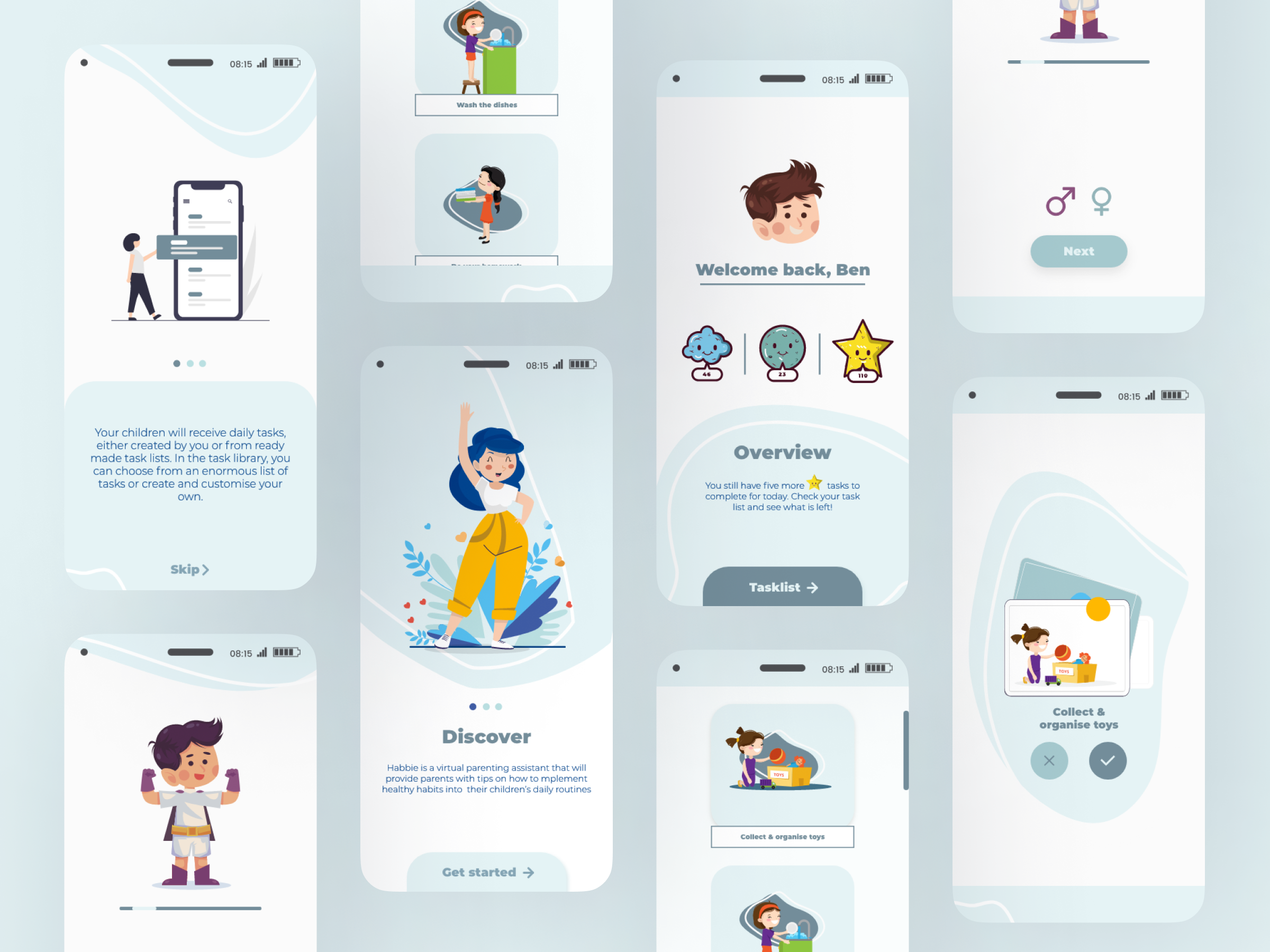
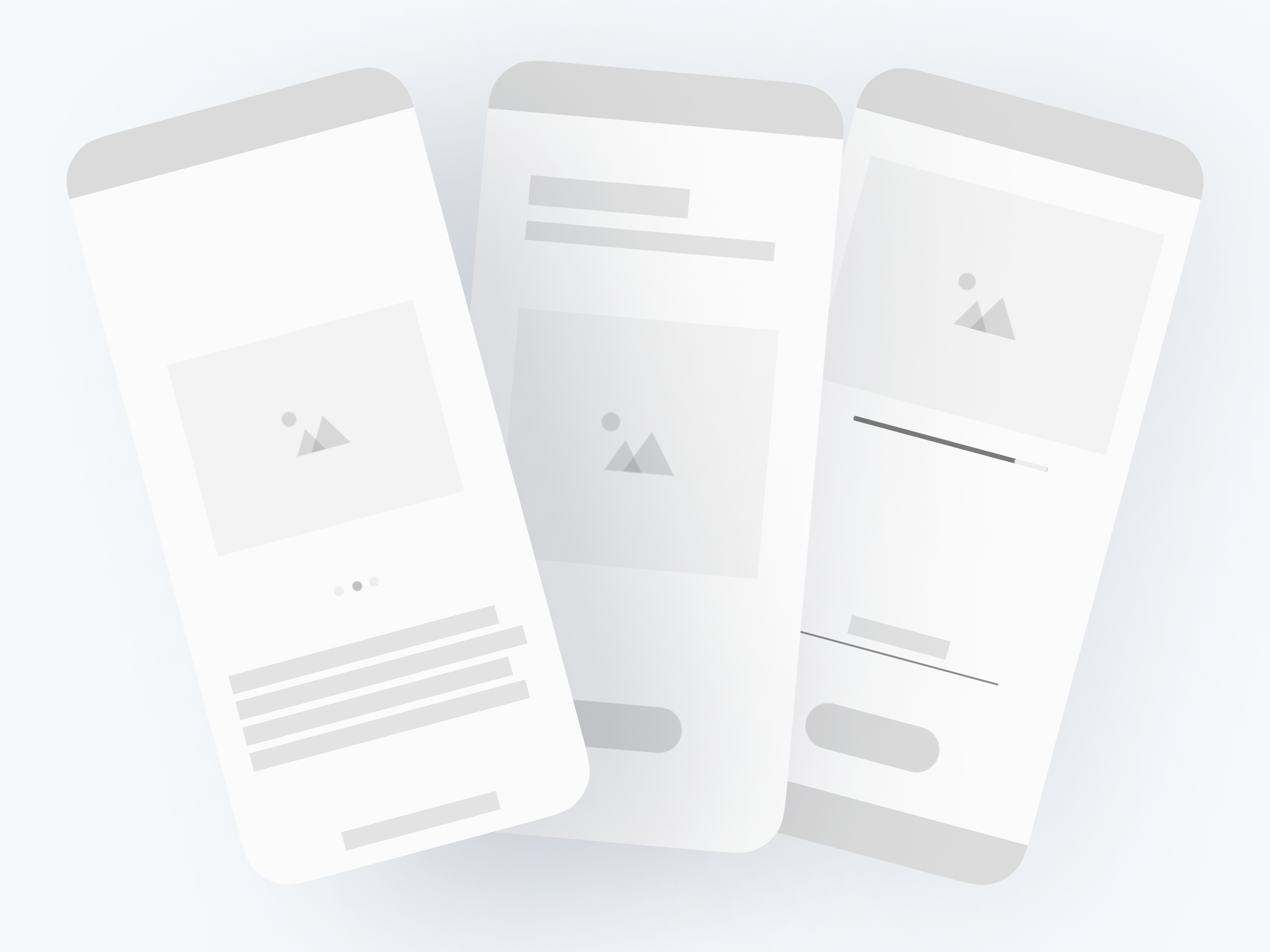
/design challenge/
The main objective for this project was to develop a digital parenting assistant, in the form of an easy-to-use and intuitive app that would support young parents with raising their children and helping them build positive habits. The goal was not only to reinforce positive habits but to also provide parenting tips & tricks on how to implement those habits in a fun and challenging way. Ultimately, the app should become an everyday tool for parents who want to organize their daily routine and improve the family dynamic and relationship.
Our accomplishment in developing a prototype and Minimum Viable Product (MVP) yielded an easily navigable and intuitive app tailored for parents and their children aged 5 and above. Functioning as a digital assistant, the app serves as a valuable source of parenting advice, offering a playful variety of activities. The completion of these activities results in rewarding system for the children, establishing a positive and motivating system that encourages them to fulfill tasks and challenges.



.png)
.png)